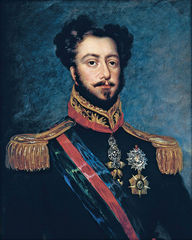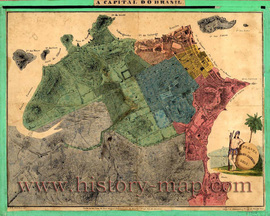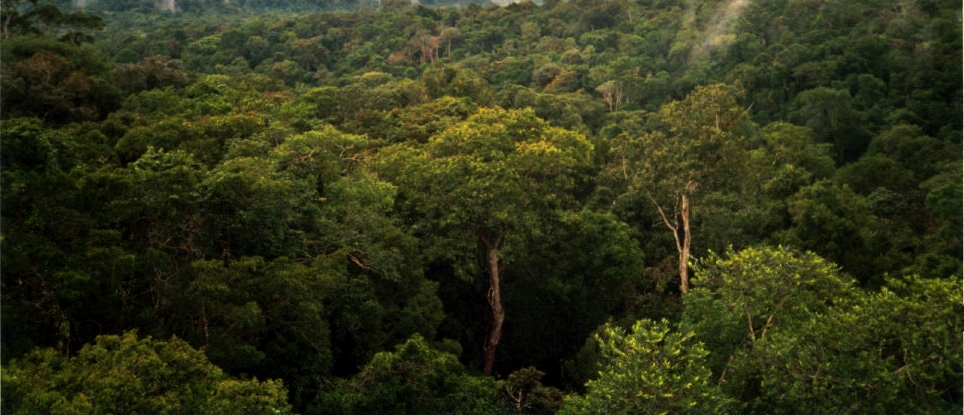June 29th - July 1st with all things related to the book, you never know what neat things we will dig up to share with you.
.
Countdown Day 1
Brazil in the 1800's
| At the end of 1807 Napoleon invaded Portugal. In 1808 the king and his court fled to Brazil and Rio de Janeiro became the capital of the Portuguese Empire. Its population grew rapidly. New public buildings were erected and new theaters and libraries were built. The king also tried to encourage the Brazilian economy. In 1808 he lifted a ban on manufacturing industry in Brazil. He also allowed Brazilians to trade freely with all friendly nations, not just Portugal. As a result many European craftsmen and artists came to Brazil. |
 Dom Pedro I
Dom Pedro I However Dom Pedro's reign as emperor of Brazil was short. Dom Pedro alienated the plantation owners by signing a treaty with the British in 1826. Britain agreed to recognize Brazil as an independent country but demanded that the slave trade be ended within 3 years. (The slave trade was banned in 1831 but it went on 'unofficially' until 1854. Slavery itself went on much longer. It was not abolished in Brazil until 1888).
Dom Pedro abdicated in 1831, in favor of his 5 year old son, Dom Pedro II.
As his son was only a child it left a power vacuum in Brazil and a period of instability followed. In 1835 the poor in Para began the Cabanagem rebellion. It went on until 1840. Meanwhile another rebellion began in Bahia in 1838.
In the face of the unrest Dom Pedro II was crowned in 1840, even though he was only 14. He soon proved to be capable ruler and he restored order.
Then in 1864-1870 Brazil and its allies Argentina and Uruguay fought a bloody war with Paraguay. It was called the War of the Triple Alliance and it began when Paraguay invaded Uruguay. The war ended in victory for Brazil and its allies but at a terrible price.
| Meanwhile Brazil experienced a coffee boom. Coffee was first grown in Amazonia in 1727. In the late 18th century it spread across Brazil and from the mid 19th century it boomed. From 1830 to 1964 coffee was Brazil's main export. In the 1870s and 1880s a network of railways was built across Brazil, which made it easier to transport coffee to the ports for export. From the mid 19th century the rubber industry in Brazil grew rapidly. Cacao growing was also an important industry. |
Brazil's 1877–78 Grande Seca (Great Drought), the most severe ever recorded in Brazil, caused approximately half a million deaths.
In the 1870s republicanism began to grow in Brazil and finally in 1889 the army overthrew the monarchy and Brazil became a republic.
Abandoned Memories
Escape To Paradise book 3
by MaryLu Tyndall

It is 1866 and the fledgling Confederate colony of New Hope is Angeline Moore’s last chance at a normal life. Running from the law, she longs to make a fresh start in this new Southern Utopia. But a series of strange disasters threaten to destroy everything the colonists have worked for, and strange visions threaten to reveal a past Angeline is desperate to hide.
James Callaway failed at both doctoring and preaching, but he hopes that his move to Brazil will give him another chance to become the spiritual leader he so desires. He longs to create a world free from the immorality that plagued every street corner back home and ruined his life. And he believes Angeline is just the sort of refined woman he needs to keep him on the right track.
But something is amiss in New Hope: haunting visions, the discovery of crypts beneath an ancient temple, and an archaic Hebrew book, set the colonists’ fears on edge. When one of their own is murdered, a series of disasters leads them to believe God has brought them to Brazil to defeat an evil that, if unleashed, could wreak havoc on the entire world.
Order Your Copy Now
| PRINT | KINDLE | PRINT |











 RSS Feed
RSS Feed













































































































